What does your household dust look like under a microscope?
Categories: Microworld | Science
By Pictolic https://pictolic.com/article/what-does-your-household-dust-look-like-under-a-microscope.htmlLet's together find answers to the most important questions of our time that torment the townspeople. For example, we simply have to find out where dust comes from in our apartments, how it looks and what it consists of. In March and April, the townspeople are tormented by household allergies. As told in the laboratory "Invitro", an allergic test for house dust is one of the most popular among the townspeople at this time of the year.
We asked employees and acquaintances of the editorial office to dig behind grandmother's wardrobes, scrape on the floor and look into the villi of the carpet in order to consider what constantly surrounds us. To take a closer look at the dust, we used a Micromed 3 LUM LED luminescent microscope and an MSP-1 stereoscopic microscope (3C version with a Canon 5D camera), which provide a magnification of 250–400 times.
(Total 5 photos)
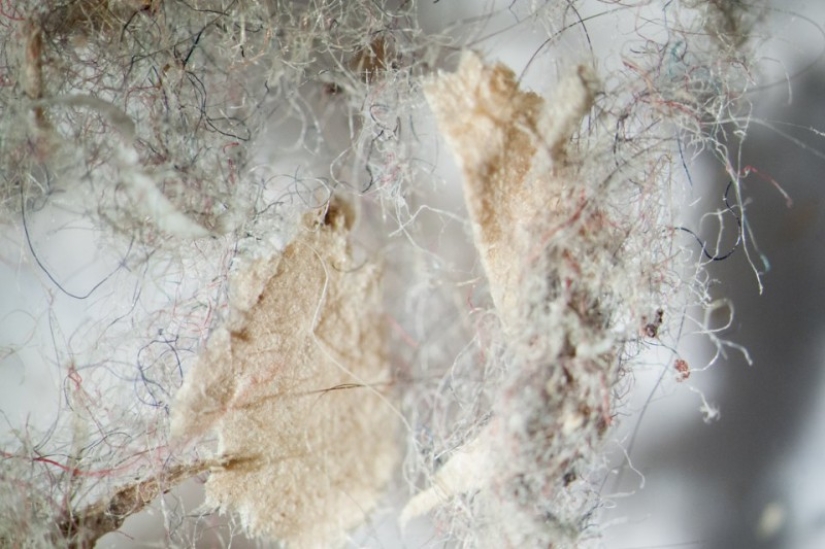
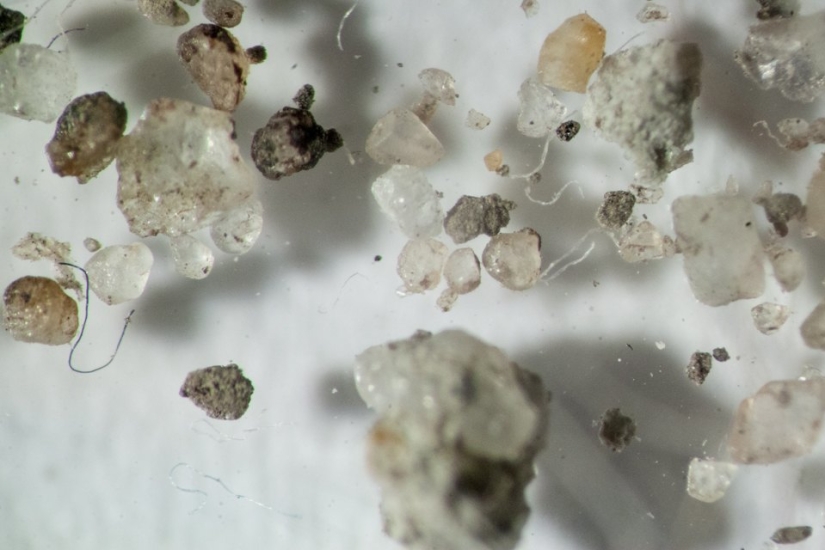
1. Floor in the hallway
The owners of a two-room apartment, holding a corgi dog, collected dust from the floor at the front door.
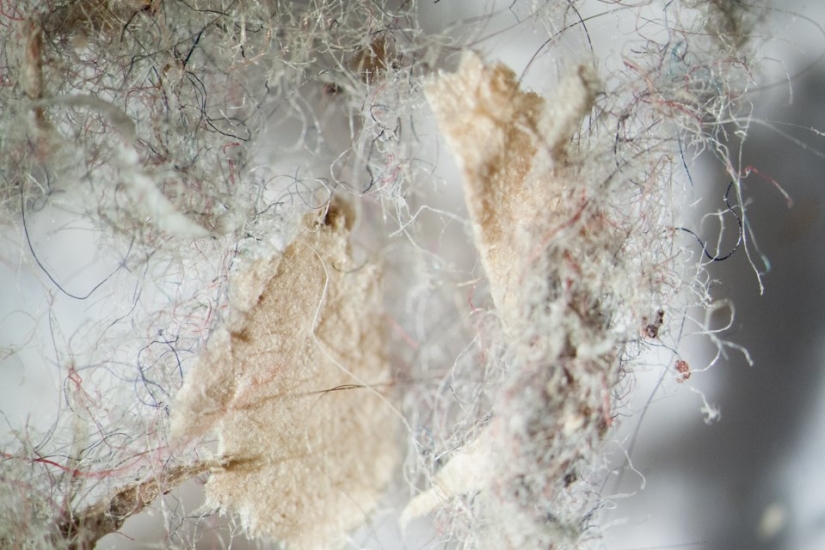
2. Bookshelf
The sample was obtained from the grandmother's apartment with a lot of accumulated things. The dust was taken from behind a bookshelf, behind which all sorts of boxes are stored for all occasions. The dust itself is at least six years old.
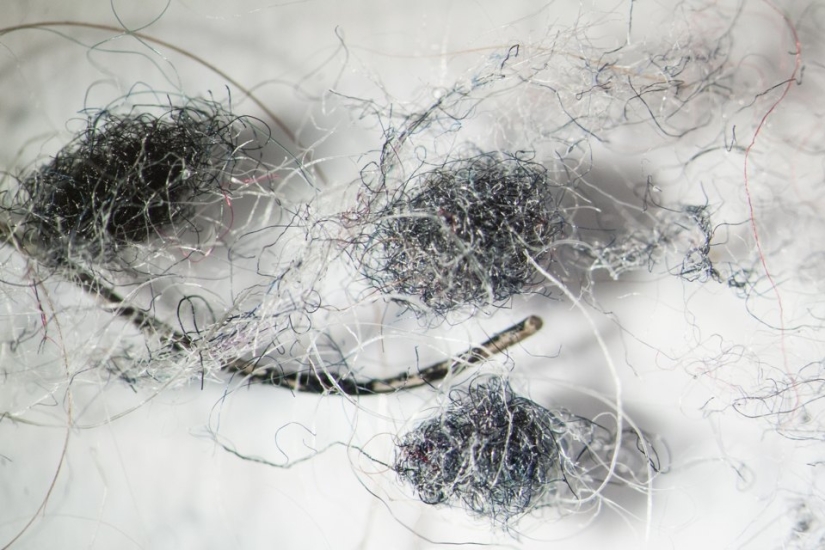
3. Carpet
A high-rise building in the back of the courtyard, the windows of which overlook the square, and the windows have double-glazed windows. There is a minimum of furniture in the room: a bookcase, a desk, a bed, an armchair. Dust has been collected from bookshelves, the floor, and a long-haired IKEA rug on the floor.
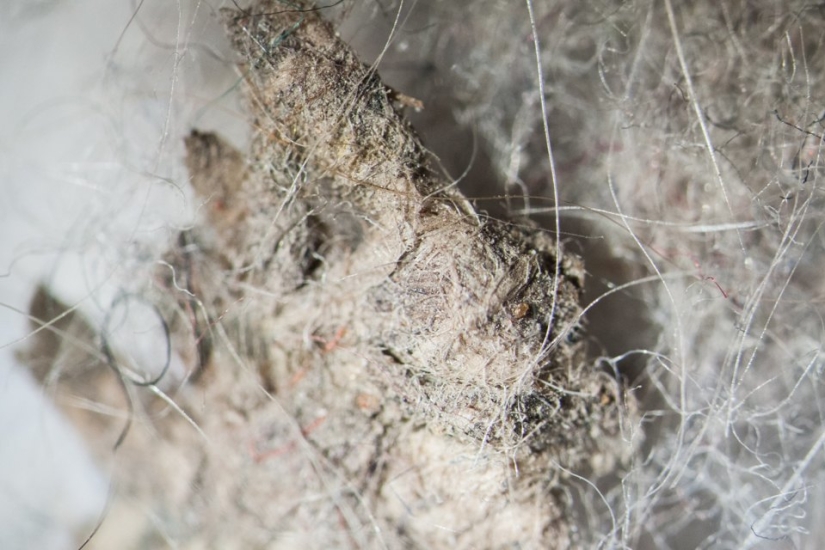
4. Battery
Dust was collected immediately after the housekeeper's visit, so we had to be smart. Thickets of this rare dust were found behind the battery: apparently, they have not been touched since the early 2000s.
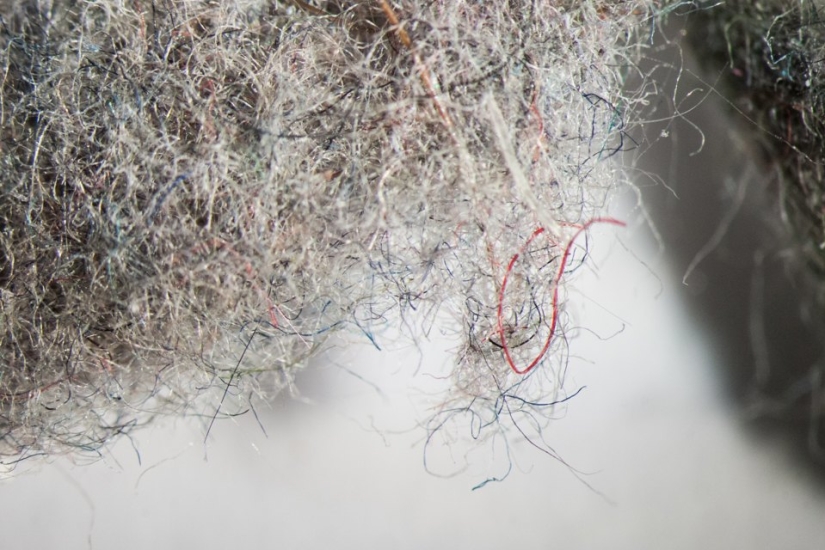
5. Library
The library is located in a corridor where there are no windows. The owner does not remember vacuuming books, at least for the last ten years. A year ago, windows were changed in the apartment, so there may be a small amount of cement dust.
Anna Kaznadzey, biochemist, researcher at the Institute for Information Transmission Problems of the Russian Academy of Sciences: “Dust is everywhere. There is atmospheric dust, space dust and, of course, house dust. No matter how much you clean your shoes and sweep the floor, dust will still appear: it is mainly brought into the house along with the air from open windows and doors. The particle size is up to one tenth of a millimeter. House dust consists of a third of mineral substances, that is, of the smallest particles of stones on our planet, and a third of organic substances: skin flakes, pollen, and fibers of fabric and paper. The last third of its components are of cosmic origin: these are small pieces of meteorites. In addition, there are many living things in house dust: for example, the ubiquitous bacteria, which can only be seen under a good microscope, and small mites, which can be seen even under not the highest magnification. Dust mites - arachnids up to half a millimeter in size - feed mainly on the same dead skin flakes and do not settle on living people. Therefore, there should be no harm from them - but, unfortunately, some people develop an allergic reaction to ticks and their waste products. These ticks are very light, and if they are thrown from the surface into the air (for example, when a person passes by), then it can take many minutes for them to fall back down. New dust on Earth is constantly formed due to the movement of the wind, which separates its smallest particles from the soil, due to volcanic activity, when ash is thrown into the atmosphere, and due to the vital activity of those plants that reproduce with the help of pollen. Wet dust turns into dirt, but when it dries, it can again enter the atmosphere due to gusts of wind.”
Sergey Sysoev, leading expert of EcoStandard Group: “It will not be possible to completely get rid of dust: it will always have both internal and external sources. A person brings dust with outerwear; a person himself, according to statistics, for example, loses about 100 hairs a day. The dust also contains elements of wallpaper, hanging plates, paper, and other fibers. If there are pets in the apartment, their fur will be in the dust. (Probably there are no pets that do not increase the amount of house dust, except for aquarium fish.) An additional source of dust is house plants. The soil in pots is in constant moisture, so colonies of fungi and bacteria can start there.
It is logical to assume that in an apartment where the walls are painted, without wallpaper, where there are no carpets, curtains and a library of books, there will be much less dust. Once a month, disinfection should be carried out in the apartment: wet cleaning of all surfaces (including behind furniture) using disinfectants. In our experience, allergies are more often caused by volatile organic compounds (formaldehyde, chloroform, ethylbenzene), the source of which is low-quality furniture, building and finishing materials.
On the street, most of the dust comes from car tires: pieces of rubber get into the air, and from there into the room. In summer, this car dust can rise quite high due to the fact that the asphalt heats up during the day, but there is no such flow at night.
There is a common misconception that to get rid of dust, you need to use an ionizing Chizhevsky lamp, which collects dust on itself. But this is not entirely true: it does not remove dust, but magnetizes it and spreads it. To reduce dust, you can put a household HEPA filter: it can, for example, be built into the ventilation system. Air humidifiers also reduce the amount of dust, but their filters must be changed in time, and the humidifier itself should be washed with disinfectants. Otherwise, he may become a secondary source of a colony of mushrooms, which he himself will spray.
Keywords: Microscope | Dust
Post News ArticleRecent articles

Dogs, like wolves, belong to the order of predators. But this does not mean that animals support classic eating behavior. Domestic ...

Have you ever seen what the cockpit of a space shuttle pilot looks like? We offer you this opportunity, albeit a virtual one. Below ...
Related articles

Electron microscopes promote the development of nanotechnology, allowing scientists to look at things with a magnification that a ...

These people painting was created...from dust collected from their homes. Artist Alison Cordon knocks bags vacuums and uses the ...

Home is a place where we feel absolutely safe. But is this really the case? Doctors recommend not to relax, because even in a ...

Sometimes even great talent is forgotten. This is precisely the situation faced by the wonderful French artist Jean-Léon Gérôme, ...